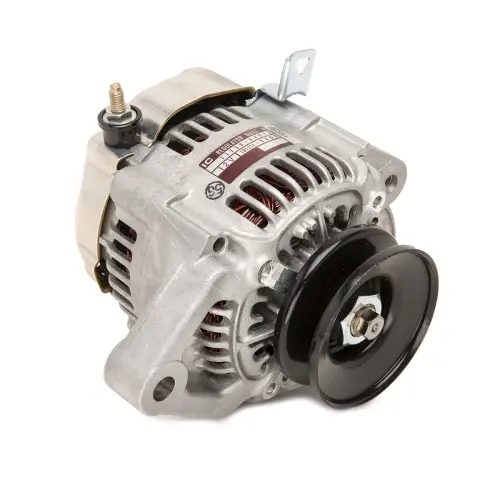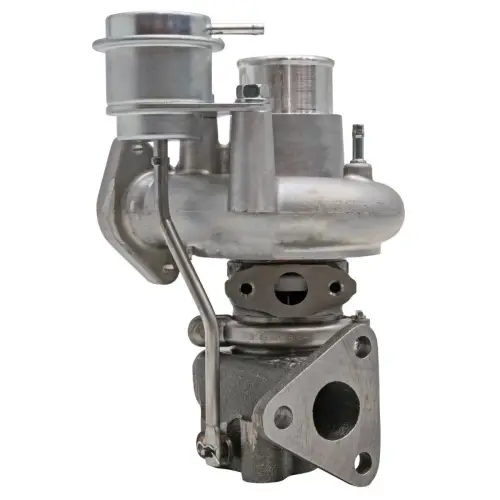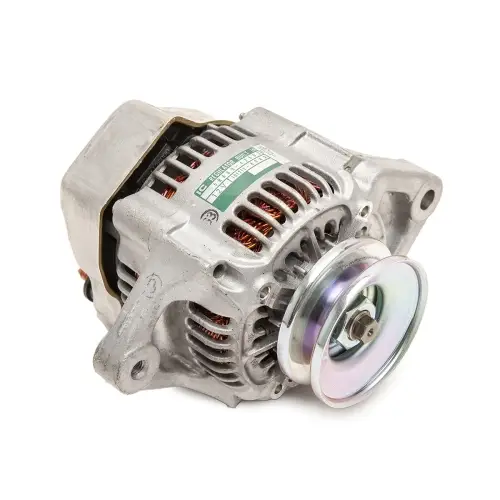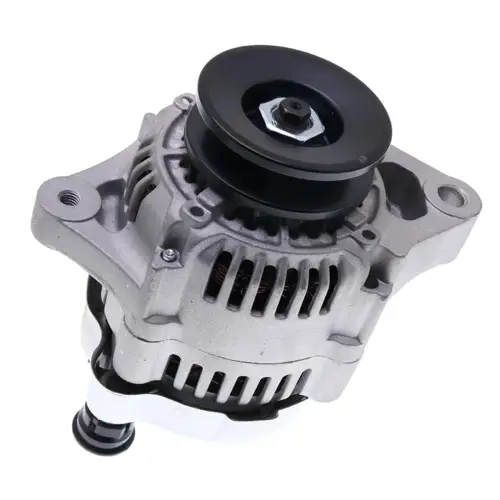Common Alternator Problems and How to Test Your Alternator
Common Alternator Problems
Alternators play a key role in a variety of applications as important electrical equipment. However, as with any complex mechanical device, they can develop problems over time. How do you know if your alternator is not working? Here are some common alternator problems.
The most typical issue is voltage instability. Alternators must be capable of producing a consistent voltage within a certain range, typically 220 V or 110 V. Voltage variations, however, can harm electrical equipment and make lights flicker or dim. A defective voltage regulator, worn brushes, or a loose alternator belt are possible causes of unstable voltage.
The complete failure of a alternator is a major issue. There could be a number of causes for an alternator to stop producing electrical output. Failure of the power supply, a malfunctioning control panel, a motor, a tripped circuit breaker, etc. are examples of potential causes. To ensure sure everything is in working order, the power supply, control panel, and wire connections must all be examined. Other possible causes may need to be further looked into if the issue persists.
An unusual noise coming from the alternator when it is running could indicate a problem. This could be brought on by defective bearings, components that were put together incorrectly, loose bolts, or other mechanical issues. The source of this noise may need to be checked out and fixed by a qualified specialist.
Fuel leaks are another common problem. Fuel leaks can be caused by deteriorating seals, loose pipe connections, or a faulty fuel pump. Fuel leaks not only waste fuel, they can also cause fires. Therefore, any fuel leaks should be repaired promptly.
The motor could overheat, electrical devices could be harmed, and even the alternator itself could be harmed if the alternator is overloaded. Connecting electrical equipment that uses more power than the alternator's rated capacity may be the reason for this. Always make sure that the connected equipment's power does not exceed the alternator's rated capacity when utilising it.
An automatic shutdown of the alternator after a period of operation may be a sign of a problem. This could be caused by an overheat protection device triggering, a fuel supply problem, a clogged air filter or other malfunction. Check these areas to determine the cause and repair accordingly.
When there is a problem with the alternator, there are many signs your alternator needs to be replaced.
Dimming or Flickering Lights: A malfunctioning alternator may be the cause of dimming or flickering in your headlights, dashboard lighting, or interior lights. It's possible that the alternator isn't supplying enough energy to maintain the lights' proper brightness.
Battery Issues: A defective alternator may result in battery issues. Even after jump-starting or changing the battery, you can still encounter frequent battery drain. The battery is charged by the alternator, therefore if it's not working properly, the battery may not receive a sufficient charge.
Warning Lights: Most modern construction machinerys have a battery or charging system warning light on the dashboard. If this light illuminates while driving, it indicates a potential problem with the alternator. It's important not to ignore warning lights, as they often indicate a significant issue.
Electrical Malfunctions: Faulty alternators can result in various electrical malfunctions. You may notice erratic behavior from the power windows, radio, or other electrical components. This is since the alternator powers these systems, and if it breaks down, it can prevent them from operating properly.
Weird Sounds: Odd noises, such as grinding, screeching, or rattling sounds, emanating from the alternator area are signs of a potential issue. These noises could be caused by worn-out bearings, a loose belt, or a malfunctioning internal component. In order to stop additional harm, it's crucial to address these noises right away.
Difficulty Starting the construction machinery: If you're experiencing difficulty starting your construction machinery, it could be due to a failing alternator. When the alternator doesn't supply sufficient power to the ignition system, it can result in slow or no engine cranking.
Burning Smell: A burning smell, often accompanied by smoke, is a serious warning sign of alternator failure. It typically indicates overheating or electrical shorts within the alternator. If you notice a burning smell, it's crucial to stop driving the construction machinery immediately and have it inspected.
How to Test If if the alternator is Bad?
A timely alternator test can determine whether an alternator is defective and help determine the best course of action for fixing it. How to test if alternator is working is covered in the section that follows.
voltage test on many metres You can rapidly check the alternator's output voltage using a multimeter. Connect the test pen to the positive and negative terminals of the battery, respectively, after first setting the multi-meter to the DC voltage measuring mode. After starting the engine, the multimeter should show a voltage between 13.5 and 14.5 volts, which indicates that the alternator is working properly. An abnormally high or low voltage could be a sign that the alternator is malfunctioning.
The dashboard of the majority of construction machinerys will contain warning lights for the battery or charging system. These warning lights may appear while the engine is operating, which may be a sign that the alternator is malfunctioning. If the warning lights are flashing or staying on continuously, it is advisable to inspect the alternator as soon as possible.
Check the battery's state-of-charge: The alternator's main job is to recharge the battery. If you observe that the battery regularly needs to be started or replaced, the alternator may not be charging it sufficiently. A battery tester can be used to evaluate the battery's state of charge and determine whether the alternator is broken.
Auditory assessment: You can first tell how the alternator is doing by listening to the sound it produces when it is working. The alternator's internal components may have been harmed if odd noises like rattling, rubbing, or chattering are audible. For a more detailed analysis at this time, it is advisable to obtain the help of a trained specialist.
Professional Diagnosis: It is advised to seek the assistance of a qualified automobile repair specialist if the aforementioned procedures are still unable to identify whether the alternator is broken. They can precisely evaluate whether the alternator needs to be serviced or replaced using cutting-edge diagnostic instruments and technology.
To maintain the appropriate operation of your construction machinery's electrical system, verify the alternator for damage as soon as possible. To maintain the safety of the construction machinery and the stability of the electric power supply, you should test the alternator or seek professional repair service as soon as you detect a problem.
Is It Easy to Replace an Alternator by Yourself?
When a construction machinery's alternator fails, many construction machinery owners consider replacing it themselves to save time and money. The alternator replacement process can be difficult for amateurs, though. This article will examine whether it is possible to replace the alternator on your own and is it hard to replace an alternator to offer some tips for doing so.
Technological prerequisites An alternator replacement takes some mechanical and electrical expertise. You must be knowledgeable about the design and operation of engines, have a basic understanding of electrical systems, and be able to utilise standard tools. For certain construction machinery models and manufactures, there can also be particular replacement methods and considerations. Hence, it is crucial to make sure you have the necessary technical knowledge and skills.
Tools and equipment: Using a variety of specialised tools and equipment is typically necessary while replacing an alternator. For instance, standard equipment like wire cutters, screwdrivers, and wrenches are essential. Moreover, a jack or other support tools could be required to lift the construction machinery and create enough workspace. Make sure you have the tools and supplies you'll need for a seamless operation before you start replacing the alternator.
construction machinery Complexity: Repair work can be difficult due to the relatively complicated architecture of current automobiles, which have many elements that are tightly spaced apart. Other parts, such as the fan belt, battery, and so on, may need to be removed in order to replace the alternator. The model and engine arrangement may also affect where the alternator is located, and certain positions may be confined and challenging to reach. Thus, patience and adaptability are needed while changing the alternator by yourself.
Concerns with warranties: You must be informed of the engine and construction machinery warranties if you intend to repair the alternator yourself. Some automakers may demand that repairs and replacements that can void the warranty be made at a facility that has been given authorization. Before making any repairs, always read the terms in the warranty booklet for your construction machinery.
For those with the necessary expertise and skill, replacing the alternator themselves may be achievable. But, if you lack the necessary experience and confidence, it is advised to seek the assistance of qualified technicians who have the necessary knowledge and abilities due to the technical requirements, tools, and equipment required, as well as the complexity of the construction machinery and warranty concerns. If you need to replace your alternator, we can provide you with cat 257b alternator, kubota d902 alternator, b16a2 alternator and so on.
 Track Your Order
Track Your Order











